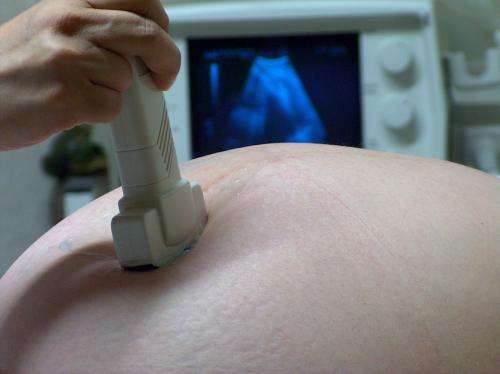Maternal obesity increases the risk of frequent wheezing in offspring

The fact that excess weight during pregnancy has negative consequences is not new information. A new study now concludes that the children of mothers obese before falling pregnant are four times more likely to have frequent wheezing, which is one of the symptoms of asthma, compared to the children of mothers weighing a normal weight.
Researchers from the Centre for Research in Environmental Epidemiology (CREAL) assessed whether obesity in mothers increases the risk of their children having frequent wheezing, a symptom associated with susceptibility to asthma during infancy that manifests as sharp, whistling sounds when breathing.
During an asthma attack, the muscles surrounding the airways tense up and their lining becomes inflamed. The passage of air is then reduced. One of the symptoms is wheezing which as a general rule begins subtly and can then worsen during the night or the first few hours of the day when breathing in cold air or even during exercise.
Published in the Paediatric and Perinatal Epidemiology, the study confirms that on average the risk of wheezing during the first 14 months of life is four times greater in the children of mothers with obesity compared to the children of mothers with a normal weight.
"We are basing this on the assumption that obesity in mothers can be a potential intergenerational risk factor for asthma," as explained to SINC by Stefano Guerra, lead author of the study. "Our proposal was to determine whether maternal obesity is associated with a greater risk of early wheezing phenotypes in children."
Therefore, the experts analysed the data of 1,107 pairs of mother and child from a Spanish study on infancy and environment (INMA project). The results confirmed the association between maternal obesity and wheezing regardless of the weight of the child and other factors such as the education of the mother, her age, whether she is a smoker, etc.
"The independent relationship of obesity before pregnancy with the increased risk of frequent wheezing in children adds more evidence to the effects of foetal exposure and its consequences on asthma-related phenotypes," states Guerra, suggesting "possible preventative benefits of loosing excess weight."
The search for the cause of asthma in infants
The experts have spent years searching for the key to asthma in infants as it is an illness that affects more than 300 million people worldwide. Of these, 52% are not diagnosed and 47% do not have a good control over the disease.
According to the latest figures from the Spanish Guide to Handling Asthma (GEMA), although the mortality rate of this illness has reduced since 1960 to 2.22 for every 100,000 (based on data from 2005), prevalence in Spain has increased during the same period.
More information: Stefano Guerra, Claudio Sartini, Michelle Mendez, Eva Morales, Mònica Guxens, Mikel Basterrechea, Leonor Arranz, Jordi Sunyer. "Maternal Prepregnancy Obesity is an Independent Risk Factor for Frequent Wheezing in Infants by Age 14 Months". Paediatric and Perinatal Epidemiology 2013, 27, 100 doi: 10.1111/ppe.12013















